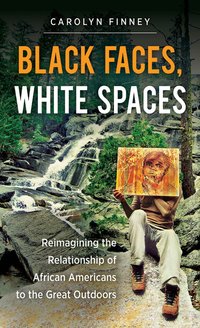

Purchase
Reimagining the Relationship of African Americans to the Great Outdoors
The University of North Carolina Press
June 2014
On Sale: June 1, 2014
194 pages
ISBN: 1469614480
EAN: 9781469614489
Kindle: B00KIT27MC
Paperback / e-Book
Add to Wish List
Non-Fiction
Why are African Americans so underrepresented when it comes
to interest in nature, outdoor recreation, and
environmentalism? In this thought-provoking study, Carolyn
Finney looks beyond the discourse of the environmental
justice movement to examine how the natural environment has
been understood, commodified, and represented by both white
and black Americans. Bridging the fields of environmental
history, cultural studies, critical race studies, and
geography, Finney argues that the legacies of slavery, Jim
Crow, and racial violence have shaped cultural
understandings of the "great outdoors" and determined who
should and can have access to natural spaces. Drawing on a variety of sources from film, literature, and
popular culture, and analyzing different historical moments,
including the establishment of the Wilderness Act in 1964
and the aftermath of Hurricane Katrina, Finney reveals the
perceived and real ways in which nature and the environment
are racialized in America. Looking toward the future, she
also highlights the work of African Americans who are
opening doors to greater participation in environmental and
conservation concerns.
Comments
No comments posted.
Registered users may leave comments.
Log in or register now!
| 


 © 2003-2024 off-the-edge.net
all rights reserved Privacy Policy
© 2003-2024 off-the-edge.net
all rights reserved Privacy Policy